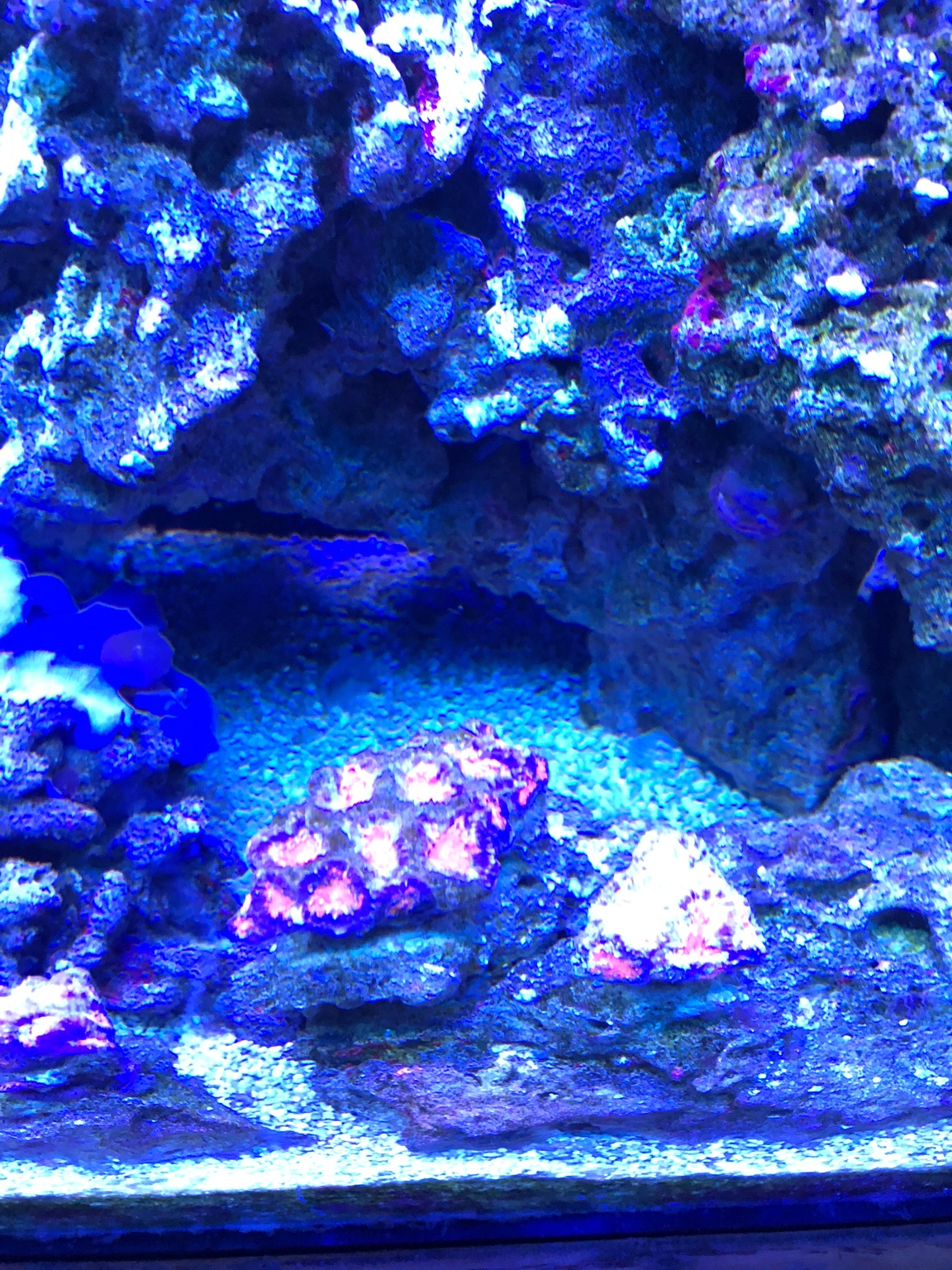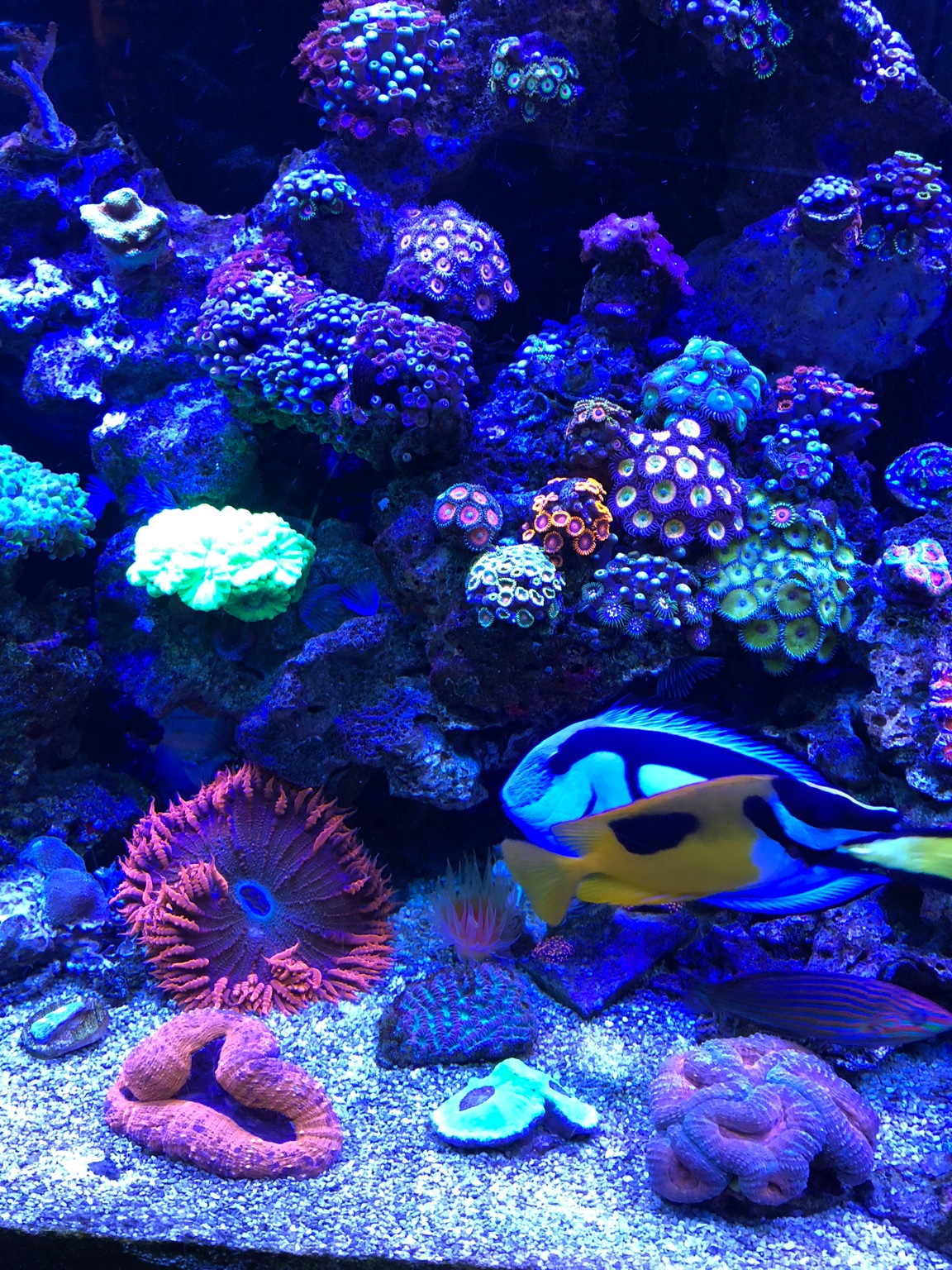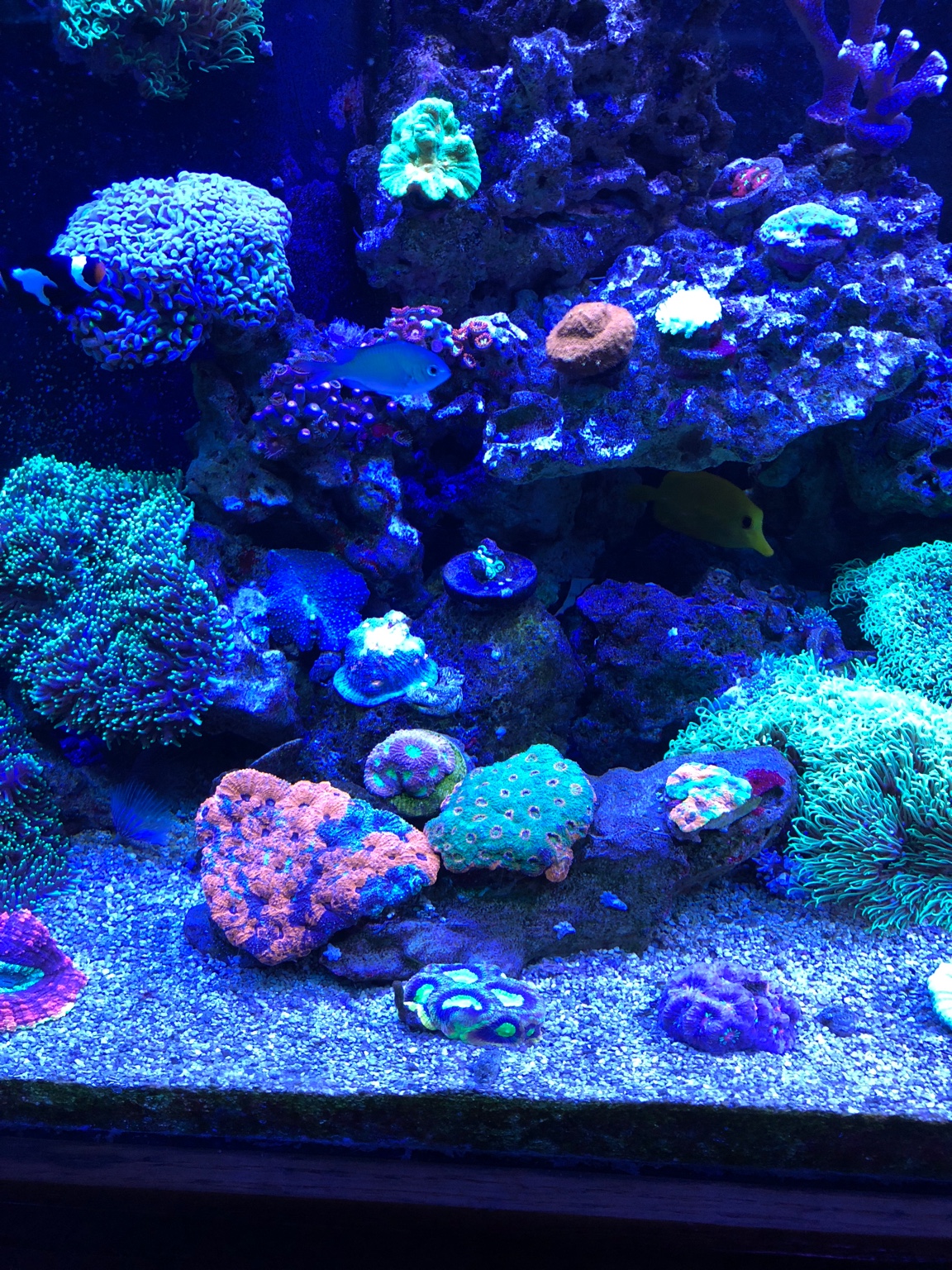Something doen’t add up
As charterreefer said, and I know Randy disagrees, IMO GFO should be avoided.
You say you have no alage, do you have a large CUC? How is the coloration and health of your corals? Are they consuming much calcium. Carbonate and magnesium?
I’m suspecting some other contaminant is affecting your test results.





















